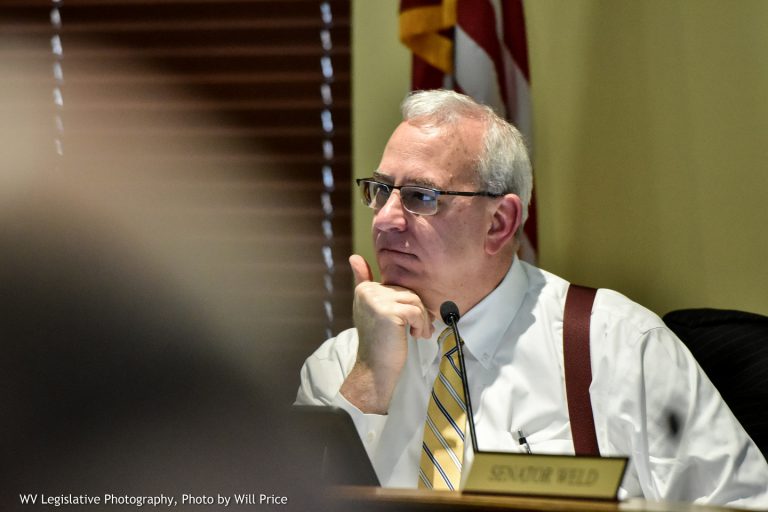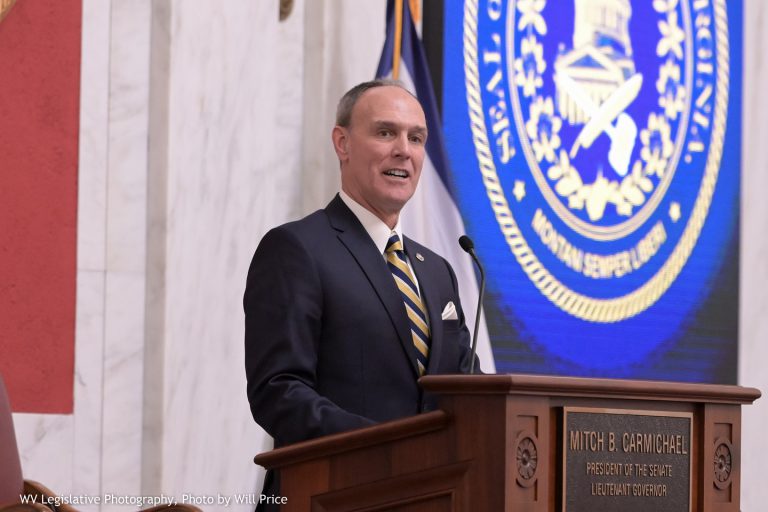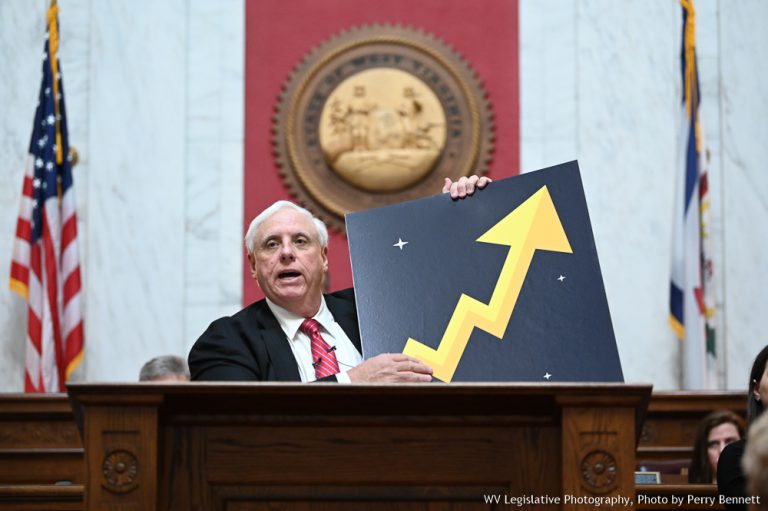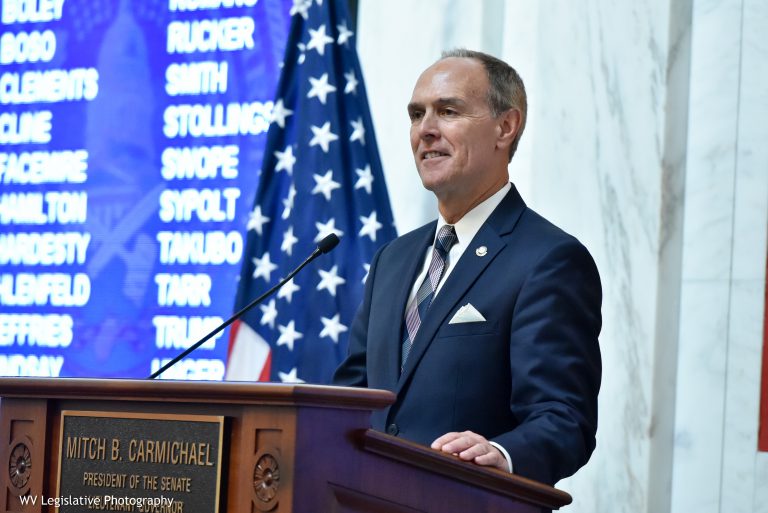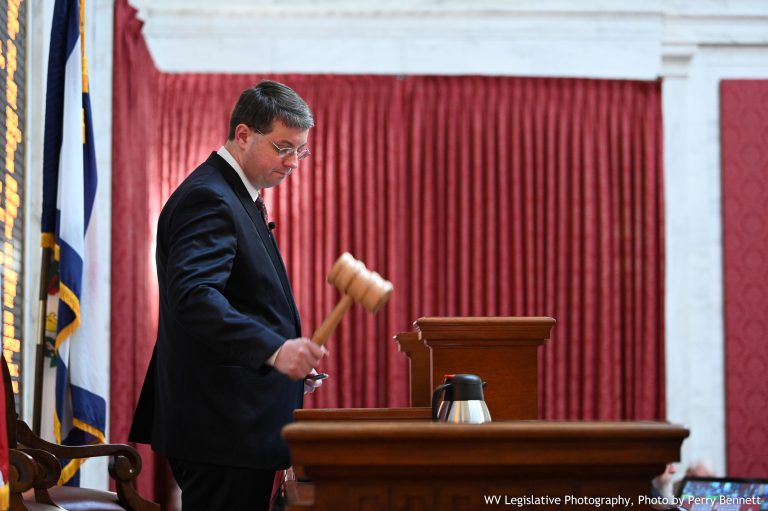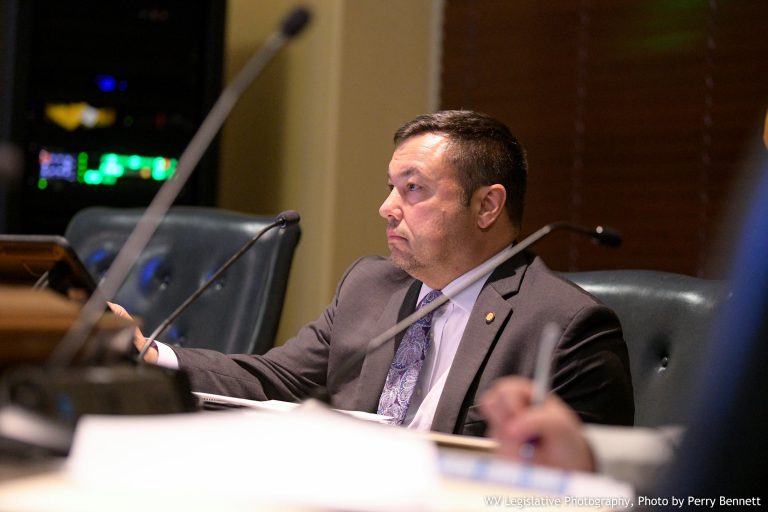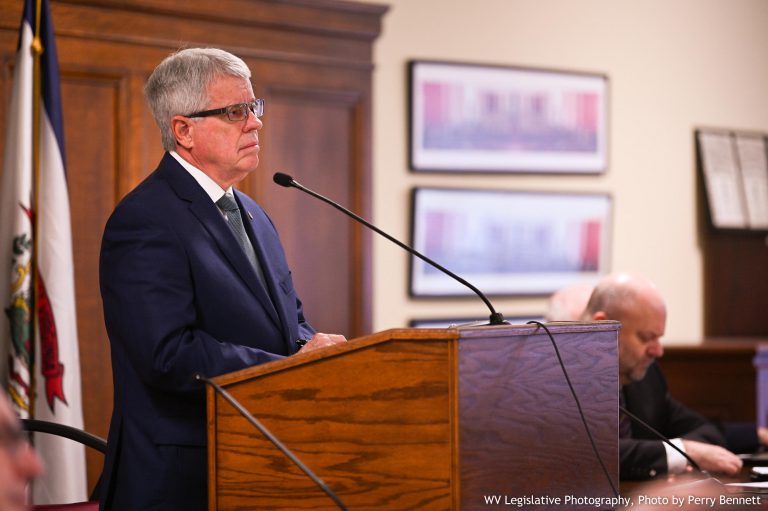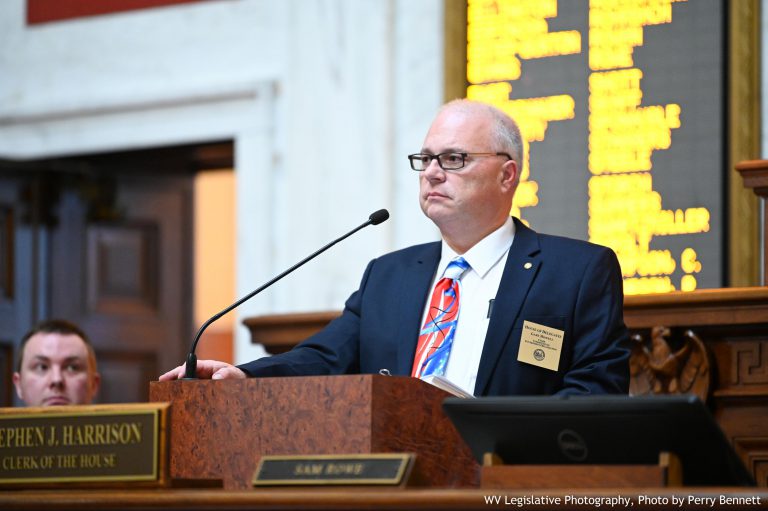West Virginia’s economy has experienced some growth in the last few years but that growth has been concentrated in a few areas and there are other continued challenges the state faces, according to an economic forecast presented to legislators Monday.
John Deskins, director of the Bureau of Business and Economic Research, presented the West Virginia Economic Outlook 2020-2024 to legislators in the House Chamber Monday morning. Deskins said there are reasons to be positive in looking at West Virginia’s economy. However, he told legislators not to lose their sense of urgency.
“Growth is underway and it is continuing but I don’t want to be too excited because that improvement isn’t happening everywhere. It is concentrated in a couple of dimensions. We need to focus on getting that growth to broaden in several ways across our economy,” Deskins said.
“Despite that growth, we still have long-running challenges,” he later added.
Some of these challenges Deskins outlined included low workforce participation, the need for a thriving workforce, volatility in the economy, and the fact that growth is concentrated in a few counties.
West Virginia lost 26,000 jobs during the recession but has slowly improved since 2016. Deskins explained West Virginia has added 10,500 jobs since that time. However, most of that growth has been concentrated in seven counties.
“I’m happy we added 10,000 jobs but at the same time, we need to maintain that sense of urgency in working hard to make sure growth broadens out to the other counties in the state,” Deskins said.
Deskins highlighted the energy sector, saying coal production declined from 158 million tons to an expected 90 million ton range last year. He said he expected coal production to be stable in the short-term but decline in the longterm. Most of the loss of coal production came from the southern coal fields.
Natural gas, meanwhile, has grown at a healthy pace. Although there is no finalized data from 2019, Deskins estimated about 25% growth last year. The biggest issue facing natural gas, he said is infrastructure.
Deskins also emphasized the need to diversify West Virginia’s economy, primarily through entrepreneurship to find the right industrial mix that works in West Virginia.
West Virginia still lags the nation in income growth and labor force participation. Currently, West Virginians earn $75 for every $100 the average American earns, Deskins explained. The area of personal income growth that is growing more rapidly is transfer payments—such as Social Security, disability, or unemployment – while wage and salary income and small business income are growing at a much slower rate.
The state’s unemployment rate is higher than the national average—at 5%. However, Deskins said the unemployment rate does not capture West Virginia’s main issue. Labor force participation — which is a measure of the economy’s active workforce calculated by the sum of workers employed or actively seeking employment is divided by the working-age population — is still last in the nation at 54%. This is 9 percentage points below the nation. That number improved slightly to 55% to 2019 but is still last in the nation. A lagging labor force participation has been an issue since the 1940s, Deskins explained.
Part of the reason for a lagging workforce participation rate is the fact that West Virginia has an older population. However, numbers are still low for prime working-age adults. He said some of the reasons for this low figure is a need for education and training, the drug epidemic and West Virginia’s overall health. West Virginia has a higher mortality rate than the rest of the nation.
“This is one of the most important statistics to characterize West Virginia’s economy,” Deskins said. “We will never achieve economic prosperity if we have 9% of the adult population sitting on the sidelines, compared to the national figure.”
Geographically, growth has been concentrated in a few regions. Deskins said the eastern panhandle and the north central part of the state have been experiencing growth. The economy in the metro valley has been flat, and the southern part of the state has grown slightly but has not recovered from the decline experienced from the recession.
“We need to think positively because of the growth we have seen. The recession is over and we are moving in the right direction. However, realistically, we will continue to see challenges and a small scope of growth,” Deskins said.



